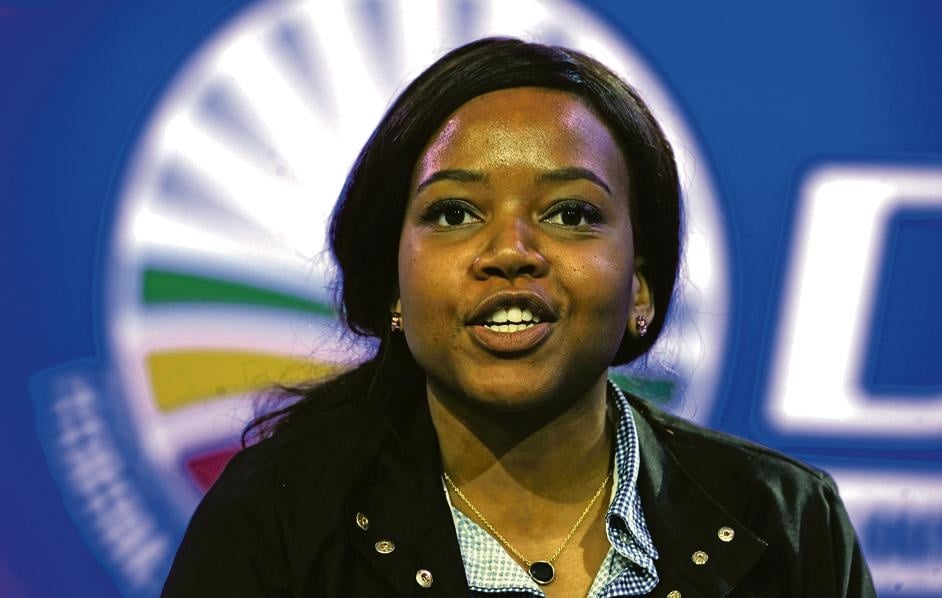
If the DA wasn’t so obsessed about not being obsessed about race, the party’s latest policy proposals on economic redress would be quite attractive.
Released a week ago for discussion and debate ahead of the DA’s policy congress next month, the document spells out the party’s vision for dealing with inequality.
Economic Justice: A Sustainable Developmental Goal Model is a sensible intervention in a country where many mistake sloganeering for policy, and where ideology keeps some leaders stuck in mud.
But then the DA is like most atheists or agnostics, who are so obsessed with believers that they turn their convictions into a religion.
The DA baulks at the idea of using race as a proxy for redress – even as it acknowledges that the race-based policies of the past are responsible for the suffering of the majority today.
“Everyone wants to ask about race, which means we spend all our time discussing it. It is important, but it doesn’t need to suck all the air out of the room,” DA policy head Gwen Ngwenya was quoted as saying this week.
Ngwenya maintains that BEE, which the party hates as much Andile Mngxitama hates soap, has benefited elites and failed to uplift the masses.
“BEE has enabled people to benefit on the basis of their race who do not need assistance at the expense of those who do. This policy will ensure that the disadvantaged benefit from redress,” she said.
In its diagnosis and proposals, the document itself does not stray too far from other interventions – be they from local institutions or international organisations – that sought to chart South Africa’s path to the future.
Acknowledging that South Africa’s long-standing inequalities “have their roots in an apartheid and colonial past”, and “have been exacerbated by an incapable and corrupt state”, the DA goes on to list “key drivers of inequality of opportunity” that keep the majority in the margins.
It identifies these as “a failed, crony state; poverty; unemployment; incomplete education and poor education outcomes; and wealth inequality caused by low savings and investments, and exclusion from the possibility of accumulating intergenerational wealth”.
To this list, it adds the breakdown of the family; inequalities in health; childhood stunting; “spatial inequalities caused by apartheid spatial design and perpetuated by failed land reform”; and a history of legislated discrimination.
So far, so good.
That sentiment could even have been uttered by the radical economic transformation crowd.
But then, in making the point that South Africa could have done much more in its 26 years as a free democracy, the document becomes naive and dreamy.
It compares South Africa with authoritarian states such as Singapore and Rwanda, which made incredible strides in similar time frames while South Africa doddered along.
“Although these countries in the early stages of their development received criticism for violations of human rights, we believe it is possible to learn what we can about competent state building from such countries while founding ours on constitutionalism and liberal democracy,” says the DA naively.
Those comparisons are tired because they required a trade-off between rights and being clobbered and abused by a benevolent dictatorship.
The point is that you can make an argument about how we could have done so much better without referring to nations whose behaviour was the antithesis of the liberalism that the DA claims to stand for.
Read: Mondli Makhanya: Tshwane farce shows coalition politics cannot work in SA
What is refreshing about the DA’s document is that it pins its thinking on the UN’s Sustainable Development Goals, which nobody can argue with.
Even the National Development Plan, adopted by both the ANC and government about eight years ago and used only to beautify speeches, is grounded in the Sustainable Development Goals.
The DA essentially argues that, if South Africa actively implemented the Sustainable Development Goal targets and used them as the lodestar, the country would begin to see a difference, not only in economic growth, but in the upliftment of the majority who are still excluded by the vagaries of our past.
What’s more, the development goals have been adopted by other societal entities and are used by private sector companies to benchmark their corporate behaviour, investment priorities and impact on communities.
In other words, there is already buy-in – and there can be more buy-in –from more than just the state.
“If we can get the support of public stakeholders, these interventions will do more to affirm and empower the majority of South Africans rather than the elitist approaches that have been experimented on for the past two decades,” according to the DA.
In our toxic political space, this document will most likely be dismissed as the work of an opposition party that is antitransformation and will never come to power anyway.
Given the events of the past six months, questioning the DA’s commitment to transformation is very valid.
And, right now, it is doubtful whether it can challenge for power in the distant future.
The party’s obsession with not being obsessed about race does it no favours.
But this is not reason enough to dismiss what is a good set of ideas that could enrich our national conversation.
 | ||||||||||||||||||||||||||
Get in touchCity Press | ||||||||||||||||||||||||||
| ||||||||||||||||||||||||||
| Rise above the clutter | Choose your news | City Press in your inbox | ||||||||||||||||||||||||||
| City Press is an agenda-setting South African news brand that publishes across platforms. Its flagship print edition is distributed on a Sunday. |




 Publications
Publications
 Partners
Partners








